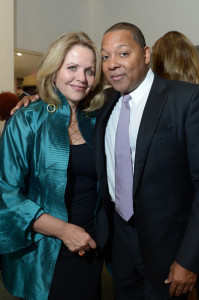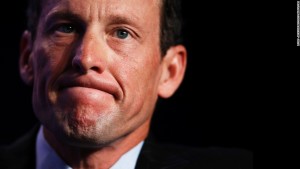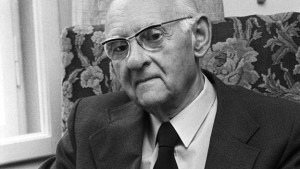What d’ya say? Let’s move the discussion about emotivism out of the abstract and into the concrete. What is it like being an emotivist? How do I know when I’m acting like one?
I decided to take up this topic once again because of three separate instances in the past week or so. The first one directly involves me. I was preparing to go to the sacrament of confession. During my examination of conscience, I came upon an old, all-too-familiar sin. I’m tired of battling against it, occasionally discouraged by my inability to make much apparent progress. But what happened next was interesting. I noticed that there was a very subtle stirring inside that suggested to me that what I needed to do was feel worse about this sin. And feeling really, really sorry, really upset with myself…well, I suppose the idea is that my behavior will magically change if I change my feelings.
Well, it doesn’t actually work for me. Does it work for you?
Once you start thinking about this meme, you find it all over. We try to convince each other of our sincerity (especially when we let each other down) by furrowing our brow, biting our lip, getting bleary-eyed. The template for this in my world will always be President Clinton. This is not a criticism of the ex-President. When he felt our pain and acknowledged “not feeling contrite enough,” he was doing what a leader should do–in an emotivist world. Media figures and fellow politicians wanted to make sure that he felt bad, and he needed to make sure that we knew that he felt bad. And it’s become something of a public ritual ever since. When a celebrity (Lance Armstrong, Tiger Woods, Paula Deen) messes up, he or she is expected to go on camera and exhibit signs of sorrow.
What other route might there be? Keep in mind that contrition is a condition of absolution in the sacrament of penance. So there is nothing wrong with the feeling itself. It can be a sign of a healthy conscience. The difficulty is that these feelings may or may not actually have an effect on future behavior. If you’ve ever dealt with (or are an) an alcoholic, you know this. Caught lying, the addict may well feel completely miserable and sorry. But the lure of alcohol and drugs typically overrides the feelings eventually. So generating correct feelings is insufficient for changing behavior.
What I recommend instead is truth and preparation. By truth, I mean what twelve-step programs mean by steps four and five: making a searching and fearless moral inventory of ourselves and stating the exact nature of our wrongs. By preparation, I mean that we learn what situations trigger our disobedience, and make a decision to act contrary to our inclinations when temptation presents itself.
Let me give another concrete example of emotivism.
A common complaint about liturgy is that those attending “don’t get anything out of it.” This sort of rhetoric tempts pastors to make the liturgy more interesting, to see it as a service that they provide to consumers whose desires need to be accounted for. And what are the consumers hoping “to get out of” the liturgy? I can’t say for certain in every instance, but I can speak from my own youthful experience. I thought that church ought to make me feel better about myself, others and the world, that it should inspire me to be a better person. I should walk away from the liturgy with different feelings. This is how many of us gauge the effectiveness of many, if not most, public and private encounters. Success means feeling good, and feeling crummy means that we are doing something wrong.
But does it? This is a highly questionable idea.

Marsalis with another consummate pro, Renee Fleming. There are many hours of dull, hard work behind their effortless musicality.
When I was studying to be a professional musician, I typically practiced three or four hours at the piano every day by myself. I did not enjoy this for the most part. Wynton Marsalis likes to refer to practice as The Monster. Every day, musicians have to get out of bed and confront the monster and slay it. The payoff comes when, after years of slaying monsters, one plays the trumpet like Wynton Marsalis or sings like Renee Fleming. In the meantime, though, one must act contrary to one’s feelings, rather than taking feelings as any kind of objective measure of one’s moral state.
Similarly, in a marriage, when a spouse becomes debilitatingly ill or a child develops a major behavioral issue, dealing with this situation will often require mastering one’s immediate feelings of disgust at sickness, resentment at having to set aside personal goals, and fear that things may spiral out of control. These feelings must be opposed because to give in to them would be to act wrongly, to fail in one’s duties and responsibilities to others. Nursing an ailing loved one can be exhausting, no fun at all. But it is beautiful. When we witness this kind of sacrifice, we recognize it as true and good as well. But to accomplish this sacrifice, we must be prepared to act contrary to our feelings, rather than having our feelings somehow demand of others some kind of compliance (as is the case when we want to “get something out of the liturgy”).
These kinds of routine decisions to act in accord with the truth, with the demands of beauty and goodness, change us into different persons. Our identities become completely wrapped up in the repeated good action, and we become virtuoso trumpeters or faithful spouses, beloved brothers. We have become virtuous, having the ability (Latin: virtus) to choose the truly good, the truly beautiful even when others can’t see it. Here’s the hitch. As we are changing, we are likely at times, perhaps often, to feel “inauthentic.” That is to say, we will miss our old selves. What it’s actually like to be a virtuoso or a faithful spouse is at first an unfamiliar experience and requires us to act in ways that feel insincere.
In an emotivist world, the great sins are inauthenticity and insincerity, the great virtues sincerity and authenticity. Thus, it is difficult for an emotivist to make any headway in any kind of human excellence. Let me end with a quote from Lionel Trilling on what this might mean [emphasis added]:
“At the behest of the criterion of authenticity, much that was once thought to make up the very fabric of culture has come to seem of little account, mere fantasy or ritual, or downright falsification. Conversely, much that culture traditionally condemned and sought to exclude is accorded a considerable moral authority by reason of the authenticity claimed for it, for example, disorder, violence, unreason.”


